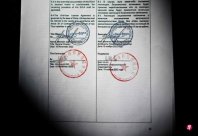(Brussels/Beijing Comprehensive News) In response to the EU officially launched an anti -subsidy survey of Chinese electric vehicles, a spokesman for the Chinese Ministry of Commerce responded that the investigation lacks sufficient evidence support and does not meet the relevant rules of the WTO.Essence
Comprehensive Wall Street Journal, Voice of Germany, etc., the European Commission issued a formal investigation notice on Wednesday (October 4), saying that it has had sufficient evidence, saying that the low -cost imported electric vehicles enjoying China's subsidies are rapidly increasing in Europe.It will constitute a fragile EU industry forced damage threats.
The survey is launched today, and it is required to be completed within 13 months. The EU can levy temporary anti -subsidy tariffs within nine months of the start date.
In response, a spokesman for the Chinese Ministry of Commerce responded on Wednesday (October 4) that the EU's investigation was based on the subjective judgment of the so -called subsidy project and the threat of damage, and the European Union required China to negotiate in a very short period of time, andIt has not provided effective consultation materials, which seriously damages Chinese rights.
A spokesman also said that the EU's move will "seriously disrupt and distort the global automotive industry chain supply chain including the EU, and have a negative impact on China -Europe economic and trade relations."
The European Union and China Chamber of Commerce also issued a statement on Wednesday, which expressed great concern on the "EU's protectionist practices and the increasingly politicized EU business environment".
Automobile manufacturing is one of the EU pillar industries, providing employment for about 14 million Europeans, accounting for 6.1%of the EU's total employment population.According to the Financial Times, nearly half of the cars exported to China are currently sold to Europe. Last year, the number increased by about 60%, of which about two -thirds were battery electric vehicles.
Some analysts pointed out that if the EU investigation and determination is unfair competition, it may impose tariffs on the 10%standard tax rate of Chinese auto manufacturers than the EU's 10%standard tax rate.


